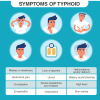No products in the cart.
Fluconazole | An Antifungal Triazole
| Introduction | Fluconazole, available under brand names of Zolanix, Fungone, Triazoline is a triazole antifungal is used to treat a variety of fungal infections, such as candidiasis, blastomycosis, coccidiodomycosis, cryptococcosis, histoplasmosis, dermatophytosis, and pityriasis versicolor. Fluconazole, also referred to as Diflucan, is an antifungal medication used to treat superficial and systemic fungal infections in a range of tissues. |
| Class of Medicine | Fluconazole is an antifungal triazole class . It functions by inhibiting the development of infection-causing fungus. |
| Mode of Action | A fluorine-substituted bis-triazole antifungal agent is called fluconazole. Similar to other azoles, it works by attaching to fungal cytochrome P-450 and then disrupting fungal membranes, which prevents lanosterol from being converted to ergosterol. The fungus (or yeast) that is causing the infection is eliminated by fluconazole. The medication kills the fungus by rupturing the cell membrane and allowing the insides to escape. Your symptoms will improve as a result of this treatment for the infection. |
| Medical Uses | Candida infection is treated and prevented using fluconazole. An infection with one of the various varieties of the fungus Candida is what causes this illness. Vaginal yeast infection and oral yeast infection are two examples of candidiasis (thrush). Additionally, infections in your throat, oesophagus, lungs, and blood can be brought on by candidiasis. Fluconazole may be used to treat bone marrow transplant recipients in order to prevent candidiasis. This is due to the fact that their immune systems are compromised, which increases their risk of contracting a severe form of candidiasis. Infection of the brain and spinal cord brought on by the fungus Cryptococcus is similarly treated with fluconazole. |
| Avaiability & Usage | Fluconazole is available in the following dosage forms and doses: Oral Tablet: 50 mg, 100 mg, 150 mg, 200 mg. Fluconazole must be administered multiple times to treat a fungus, with the exception of vaginal candidiasis. Based on how the patient reacts to the treatment, the dose is changed. Until the infection is entirely cured, be sure to periodically consult the doctor to assess the effectiveness of the therapy. 200 mg the first day for Candida peritonitis, then 50 to 200 mg once daily after that. |
| Side Effects | The most frequent adverse effect of fluconazole administration is sleepiness, along with the following effects: Headache. |
| Caution (while taking with other medicine) | Before using fluconazole, tell your doctor if any of the following problems exist: Allergy: Previous history of allergy to fluconazole or any other azole-class drugs. Fluconazole might be harmful to the foetus if used during pregnancy and while nursing. Therefore, let your doctor know if you plan to become pregnant or plan to breastfeed during the first three months of your pregnancy. The doctor could suggest using birth control during treatment and for a week after the last dose to prevent pregnancy. Heart Diseases: Let your doctor know if you have a history of heart illness, especially if you have an irregular heartbeat or low potassium levels. This is due to the fact that fluconazole has been linked to alterations in heartbeat. Consequently, precautions should be made before giving the drug. Skin Rashes: Contact your doctor right away if any skin rashes appear after using this medication. Surgery: Before having any type of surgery, including dental surgery, tell your doctor that you’ve been taking fluconazole. Endocrine Issues: Fluconazole has been linked to alterations in the quantities of hormones generated by the adrenal glands. Once the medicine is stopped, this is reversible, and the levels revert to normal. |
| Important Warning | Adrenal gland issues could result from this medication. If you have diarrhoea, dizziness, fainting, lack of appetite, mental depression, nausea, skin rash, unusual tiredness or weakness, or vomiting, consult your doctor immediately once. |
| Available Brands | Zolanix, Fungone Triazoline |


















